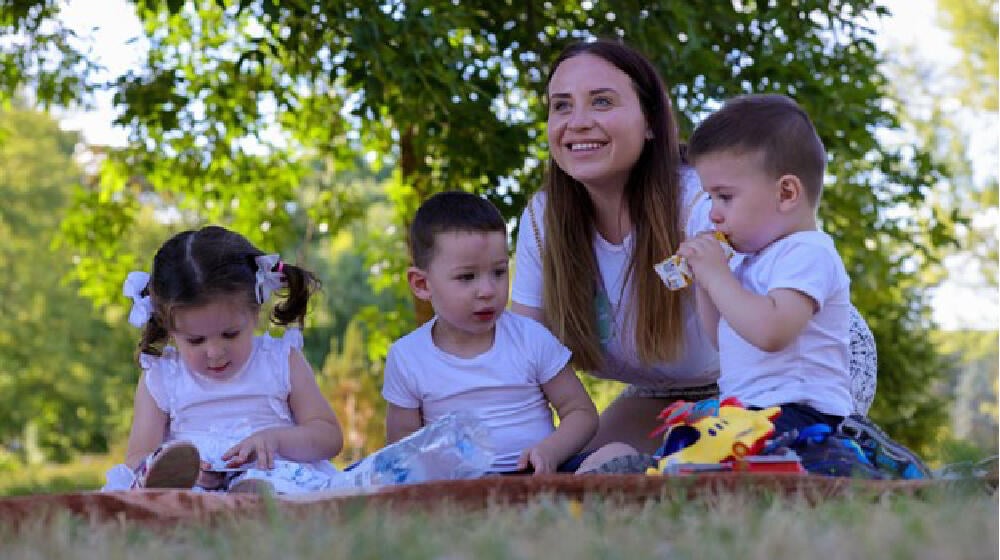When Diana Dontju in Moldova found out she was pregnant with triplets, she asked her supervisor for flexible work hours. He agreed – this approach had become familiar during the COVID-19 pandemic and made sense to retain skilled employees in their positions. After giving birth, Diana worked from home and eventually started coming to the office three days a week to continue her role as the Executive Director at the "Panilino" cake factory. "Without these policies, I would have had to find another company or stay at home, unemployed," she said.
As her children grew up, Diana started sending them to a daily care center established within the premises of the Panilino factory. "Now, if something happens to one of my children while I'm at work, I can simply go and check on them," she says.
Her experience is an exception in this region where women often must choose between their career or their family. A recent survey by UNFPA and the Ministry of Labor and Social Protection of the Republic of Moldova revealed that 9 out of 10 women with children under 3 years of age stay at home. The lack of family-friendly policies has had disturbing effects: people often have fewer children than they want, reducing birth rates. Additionally, businesses – already dealing with a diminished workforce due to emigration – don't benefit from the skills of women who can't re-enter the workforce after giving birth.
Through a program funded by Austria that supports gender-responsive family policies in Moldova and the Balkans, UNFPA advised Panilino's management on developing family-friendly workplace policies and granted funds to establish a daily care center. Testimonies show that such policies – both nationally and implemented by the private sector – are powerful tools to reduce gender discriminatory norms and redistribute unpaid parental care work, allowing both men and women to pursue their career aspirations without having children first. While the primary goal is to help more people balance work and family life, it simultaneously eases the pressure on young people to seek job opportunities abroad.
Albania is another country in the region that has implemented family-friendly policies, including generous parental leave benefits for both women and men. However, even though available, men benefiting from paternity leave are few. In Southeastern Europe, only 3 percent of men report having taken parental leave.

Ardit Dakshi's experience suggests at least one reason why. His job as a systems engineer in Tirana made it easier for him to work from home when his wife gave birth to twins. "At first, my colleagues laughed at me," he said. However, he added, "When my colleagues saw all the benefits, they started using paternity leave too."
The populations of many countries in Eastern and Central Europe are declining rapidly. Governments are concerned that without more births and in the absence of numbers due to emigration, their economies will deteriorate as there won't be enough young workers to contribute to their social support schemes, upon which their populations entirely depend in old age.
Some countries have employed government incentives to encourage people to have more children. The incentives vary widely and include payments to families with more children, tax exemptions for larger families, housing, and car-buying subsidies, as well as rewards for mothers with more than five children. The experience with "baby bonuses" shows that cash incentives or tax refunds, especially when modest, have an insignificant long-term impact on birth rates.
A family-friendly policy helps couples manage work and family so that they can have the desired number of children. Studies and facts support the data that a work environment that enforces family-friendly policies, parental leave, and anti-discrimination measures provides women and girls with more opportunities to pursue their careers, and men with more family responsibilities. "Taking parental leave allowed me to build a strong relationship with my daughters, and that's the most important thing I've ever done in my life," says Aditi.
As Diana, is on a Zoom call, her son Aleksandri climbs onto her lap. "He was a bit unwell today, so I brought him to the office with me. I wouldn't be able to do this if my employer hadn't implemented family-friendly policies," she said. For Diana and Ardit, flexible and adaptive work conditions have made a big difference in their lives.


